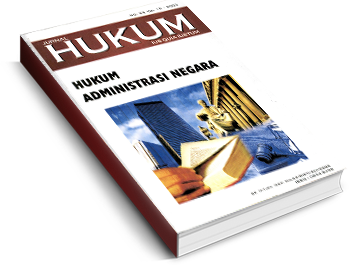Main Article Content
Abstract
The United States'strong commitment to global protection of intellectual property rights is rooted in its goal to preserve or regain the competitiveness and dominance of United States exports. In recent years, the United States has been experiencing significant and growing trade imbalances with its trading partners. The development of the Section
301 provisions in the Omnibus Trade and Competitiveness Act of 1988 ("Trade Act") over the past twenty years reflects the United States'commitment toward international intellectual property protection. Reacting to GATTs inability to ensureprompt action on complaints
froth the United States involving proliferating bilateral and free trade agreements. Congress created Section 301 as part of the 1974 Trade Act Subsequently in 1984, recognizing the lack of intellectual property protection in other countries and the billions dollars lost by the United States intellectual property rights holders, Congress amended Section 301 to specifically address these issues. The 1984 Trade Act authorized the president to impose trade sanctions against any country that did not provide adequate intellectual property protection and engaged in "unreasonable and unjustifiable'' trade practices. The 1988
Trade Act further amended Section 301 by creating Special 301 provisions, and by granting the United States Trade Representative ("USTR") authority to act on behalf of the interests of the United States intellectual property rights holders.
301 provisions in the Omnibus Trade and Competitiveness Act of 1988 ("Trade Act") over the past twenty years reflects the United States'commitment toward international intellectual property protection. Reacting to GATTs inability to ensureprompt action on complaints
froth the United States involving proliferating bilateral and free trade agreements. Congress created Section 301 as part of the 1974 Trade Act Subsequently in 1984, recognizing the lack of intellectual property protection in other countries and the billions dollars lost by the United States intellectual property rights holders, Congress amended Section 301 to specifically address these issues. The 1984 Trade Act authorized the president to impose trade sanctions against any country that did not provide adequate intellectual property protection and engaged in "unreasonable and unjustifiable'' trade practices. The 1988
Trade Act further amended Section 301 by creating Special 301 provisions, and by granting the United States Trade Representative ("USTR") authority to act on behalf of the interests of the United States intellectual property rights holders.
Keywords
intellectual property rights
Section 301
Trade act
Indonesia
Article Details
License
Authors who publish with this journal agree to the following terms:
a. Authors retain copyright and grant the journal right of first publication with the work simultaneously licensed under a Creative Commons Attribution License that allows others to share the work with an acknowledgement of the work's authorship and initial publication in this journal.
b. Authors are able to enter into separate, additional contractual arrangements for the non-exclusive distribution of the journal's published version of the work (e.g., post it to an institutional repository or publish it in a book), with an acknowledgement of its initial publication in this journal.
How to Cite
Atmadja, H. T. (2016). Dampak Special 301 terhadap Industri Rekaman Indonesia. Jurnal Hukum IUS QUIA IUSTUM, 10(22), 147–155. https://doi.org/10.20885/iustum.vol10.iss22.art12




